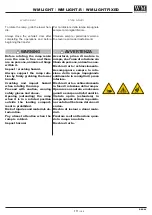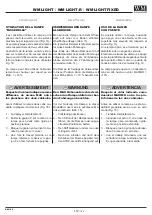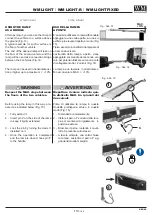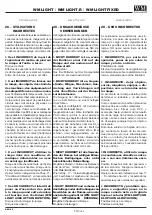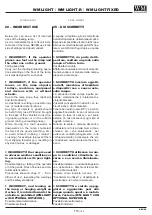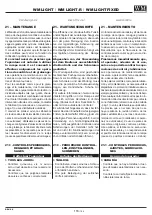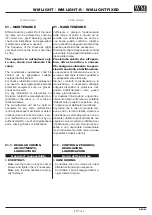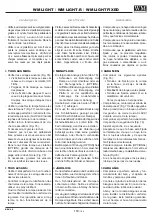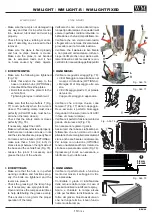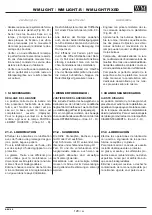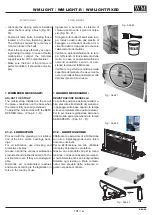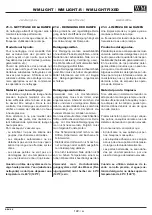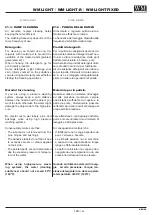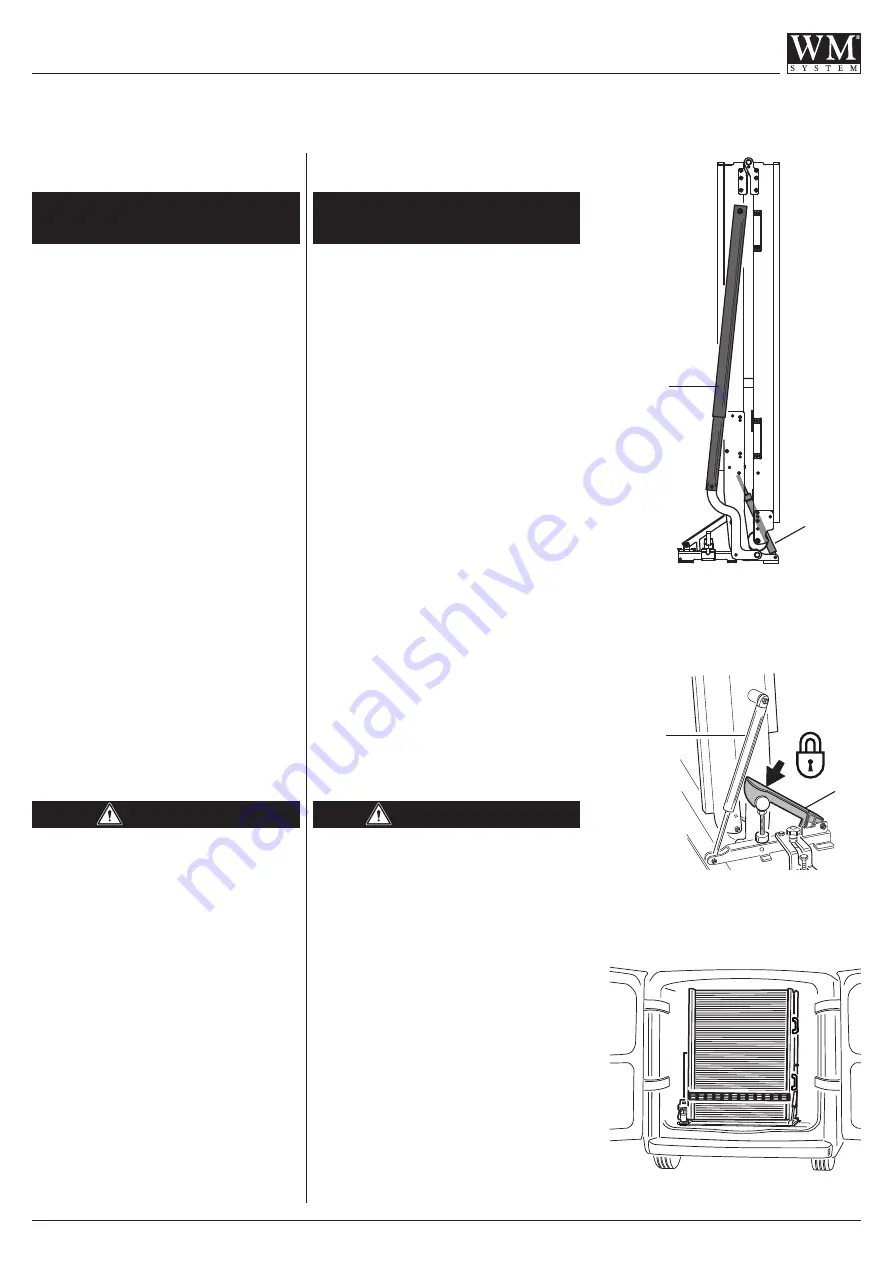
ENGLISH
ITALIANO
REV. 00
125
/ 164
WM LIGHT
/
WM LIGHT-R
/
WM LIGHT FIXED
P
G
P
Fig. - Abb. 84
Fig. - Abb. 85
Fig. - Abb. 86
21.4 - INTERVENTI DI
MANUTENZIONE
Riservati esclusivamente
a personale tecnico
specializzato.
SOSTITUZIONE MOLLE DI
BILANCIAMENTO DELLA RAMPA
Il peso della rampa viene controbilan-
ciato (equilibrato) mediante due molle
che neutralizzano in parte il peso della
rampa stessa affinché l’operatore debba
fare solamente un minimo sforzo in fase
di apertura/chiusura.
Con la rampa in posizione di riposo, que-
ste molle di controbilanciamento sono
solo in parte sollecitate.
Già in fase di apertura della rampa esse
aumentano la loro carica accumulando
molta energia meccanica.
Con la rampa completamente aperta
le molle raggiungo il massimo grado di
compressione (molla a gas) e tensione
(molla meccanica). In figura 84:
P - MOLLA A GAS (lato destro) lavora
in compressione aprendo la rampa.
Serve per mantenere chiusa la ram-
pa anche con gancio G alzato.
S - MOLLA MECCANICA
(lato sinistro) lavora in trazione.
Serve per diminuire lo sforzo dell’o-
peratore in fase di chiusura rampa.
PERICOLO
Presenza di elementi meccanici
sotto pressione o tensione.
Alto rischio di lesioni anche le-
tali dovute ad urto, in caso di
espulsione violenta di tali ele-
menti dalle proprie sedi.
E’ vietato, pertanto, fare qualsi-
asi operazione di smontaggio o
manutenzione quando la rampa
è aperta.
Per questa operazione di manu-
tenzione consultare sempre pri-
ma il fabbricante.
Non posizionarsi mai in asse con
le molle.
Operare mantenendosi di lato.
Prima di sostituire le molle chiudere
sempre la rampa, bloccarla e assicurarla
contro aperture accidentali mediante fa-
scia o fune (Fig. 85 - 86).
21.4 - MAINTENANCE
INTERVENTIONS
To be carried out
only by specialised
technical staff.
REPLACING THE RAMP
BALANCING SPRINGS
The weight of the ramp is counterbal-
anced through two springs that partially
neutralize the weight of the ramp, so that
the operator has to only exert a minimum
effort when opening/closing the ramp.
When the ramp is in standby position,
these counterbalancing spring are only
partly engaged.
When the ramp is being opened, these
springs already increase their load by
accumulating a great amount of me-
chanical energy.
When the ramp is fully opened, the
springs reach their maximum compres-
sion (gas spring) and tension (mechani-
cal spring). In figure 84:
P - GAS SPRING (right side) works in
compression when the ramp is opened.
Required to maintain the ramp closed,
even when the hook G is raised.
S - MECHANICAL SPRING
(left side) works in traction.
Required to assist the operator
when closing the ramp.
DANGER
Presence of mechanical ele-
ments under pressure or tension.
High risk of injuries (even deadly)
due to impact, in case of violent
explosion of these components
from their housings.
Therefore, any demounting or
maintenance operation while
the ramp is opened, is strictly
forbidden.
For this maintenance operations,
contact first the manufacturer.
Never stand in alignment with
the springs.
When working, stand on the side.
Before replacing the springs, always clo-
se the ramp, block it, and secure it from
opening accidentally, using straps or ro-
pes (Fig. 85 - 86).
S

